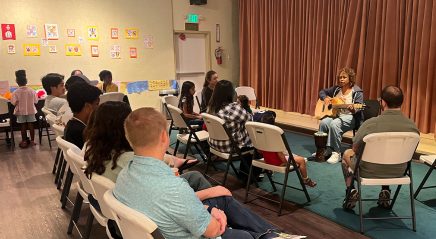We have just $500,000 left to raise for the ELCA Malaria Campaign! ELCA members and congregations have given more than $14.5 million to fund the initiatives of our Lutheran companions and partners in Africa. Thank you! Our commitment to these programs is $15 million. Help us to fully fund all of this life-saving work! Click here to give now.

Making room for grief and hope
In January 2025, Los Angeles County experienced one of the most destructive wildfire events in California history. The fast-moving blazes of the Eaton Fire destroyed more than 16,000 structures and…





